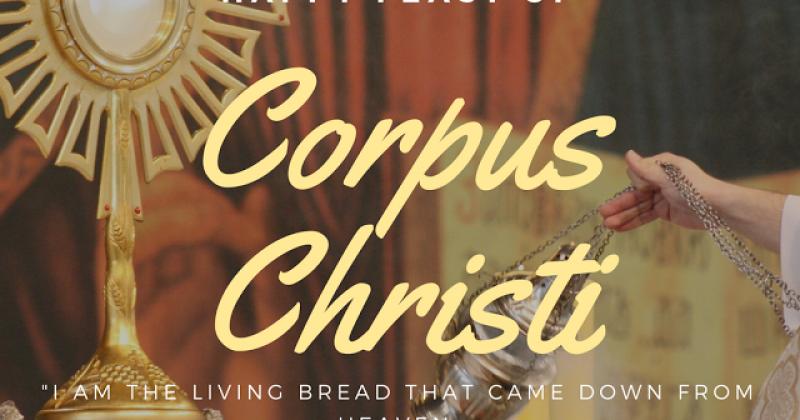Following is the homily given by Cardinal Vincent Nichols of Westminster.Given for the Solemnity of Corpus Christi, June 14, 2020, in Westminster Cathedral:
These last three months have been a very testing time. Whatever words we use: ‘lockdown’, ‘social distancing’, ‘self-isolation’, they all point to pressure on our relationships. This is a time in which all our relationships are being tested.
In some circumstances, we may be seeing too much of each other. For others, it is the absence, the impossibility of seeing each other that is so stressful. In both situations, we have had to face new challenges and find new ways of sustaining each other and our love and friendship.
So too with the Lord, Jesus Christ.
For most people, this has been a time of fashioning new patterns of prayer and relationship with the Lord, or, better, recapturing some old treasures. Even so, it has been impossible to come into the church, into his sacramental presence, for our praise and prayer, for our comfort and consolation. This we feel very keenly on the Feast of Corpus Christi.
It has also been impossible to receive Him in Holy Communion in the celebration of the Mass. Such a long Eucharistic fast. For many, this time of absence has made our hearts grow in longing. How much we long to come together to receive again the life in Christ of which the Gospel speaks.
‘Anyone who does eat my flesh and drinks my blood has eternal life.’
That person ‘lives in me and I in him,’ says Jesus.
‘Whoever eats me will draw life from me,’ he tells us.
Tomorrow our churches may open again, for our private, individual prayer. Again we can come into this sacramental presence of the Lord, in the sacred space of the church. Again we can kneel before him and open our hearts to him, knowing his loving gaze and merciful embrace.
This is such a moment of grace, not only for us individually but also, I believe, for our society. The wide-open doors of a church are a reminder that there is more to life than the haste of a busy day and even the loving circle of family or friends. They draw us in, so as to remember that all our days are passed in the presence of God. To be aware of that presence enriches our lives, restores stability in our souls, engenders compassion for those most in need, lifts us up when our failure weighs heavily upon our hearts.
The Eucharist is the fullness of that presence of the Lord. So we long to celebrate Mass again, the gift which is the focus of this great Feast. We long for the day on which we can gather together again around the altar and take part, directly and physically, in that celebration. Remember the words of St Augustine: ‘See on the altar the sacrament of who you are and of what you are to become.’
In the Eucharist, then, we learn again what it is to be truly human, what it is that makes us great, what it is that gives us hope. We learn again that Jesus is our Way, our Truth, and, as he promises so clearly today, our Life. Yes, we have benefited from all the advantages of the internet to share in the Mass as best we can. But there is so much more.
In these days there is much talk of recreating our society in a ‘new normal’. No going back to the old ways, we say. Many demonstrating on our streets want new ways, an end to an ingrained prejudice against Black members of our society which they experience over many years. That is a crucial challenge. New growth needs good soil and good roots. The deepest source of our renewal lies in all that is given to us in Christ Jesus: the forgiveness of our sins, the witness of a life poured out for others, the promise of fidelity unto death, and, yes, into life everlasting.
As we celebrate this great Feast, we pray to our loving Father that his blessing, given with ultimate power in the death and resurrection of his Son, may flow across our society. Today we rejoice that, in the power of the Holy Spirit, the Son is forever with us in this most Wonderful of all Sacraments, the Sacrament of His most Holy Body, and his Most Precious Blood. Amen.
